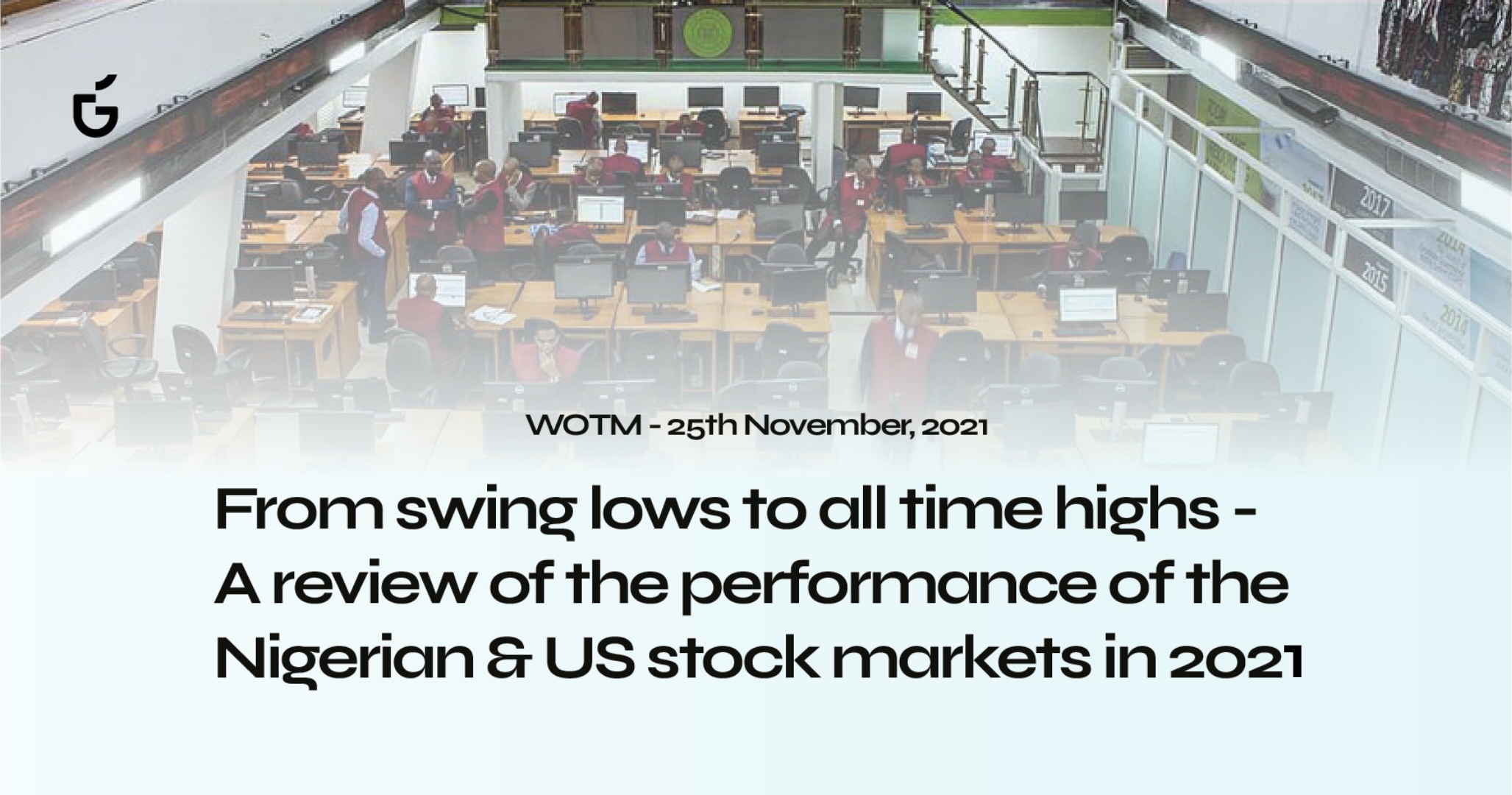 Africa
AfricaUnderstanding how companies are valued – A look into the MainOne acquisition
15 December, 2021
05 August, 2021 | 4 MINS READ
The Story
on the 27th of July 2021, The Central Bank of Nigeria (CBN), at the press briefing that follows its bi-monthly monetary policy meeting, announced a ban on the sale of foreign exchange to Bureau de Change (BDC) operators in Nigeria.
According to the CBN Governor, Godwin Emefiele, the BDC operators facilitate graft, illicit financial flows, and money laundering in the country, all of which has warranted the ban on their activities.
Some Historical Perspective on Past BDC Bans/Suspensions
Back in January 2016, in the face of dwindling foreign exchange reserve, the CBN announced a halt in sale of forex to BDC operators. In the words of the CBN Governor “The bank (CBN) would henceforth discontinue the sale of foreign exchange to BDCs.”
This not the first time this is happening. In 2016, CBN gave round tripping and other reasons similar to those given last Tuesday for the ban of BDCs. This action led to an immediate decline of the Naira in the parallel market from N265 per dollar to N283 per dollar at the time. In June 2016, after the commencement of a managed float foreign exchange regime, the CBN announced a resumption of sale of FX to BDCs, citing the continued depreciation of the Naira at the parallel market and round tripping as reasons for the lift of the ban on BDCs at the time. The dollar was trading at N325/$ at the parallel market when this was announced and never went back to the rate before the ban.
In March 2020, at the peak of the pandemic, we saw a repeat of this action. Again, the CBN stopped the sale of FX to BDCs. This time it wasn’t a ban but a suspension. The suspension came after the Association of Bureau de Change of Nigeria (ABCON) wrote to the CBN to halt the weekly sale of FX to the BDCs to control the spread of Corona Virus in the country. ABCON requested for a 2-week suspension, but the suspension lasted for 7 weeks contributing to the 15% depreciation of the Naira-Dollar exchange rate from N400 to N460 in that period.
This recent ban is a little different from the previous bans in that the CBN isn’t just stopping the sale of FX to Bureau de Change operators, but also no longer processing applications for the new BDC licenses. Whether or not this ban will be lifted depends on its effect on the foreign exchange rate in the long run.
Economic Implications of the Ban
Kneejerk reactions to the announcement by some Nigerians have led to a bit of volatility in the price of the Naira in the FX market. Naira/dollar price jumped to a high of N525/$ a day after the announcement and subsequently slipped to N512/$.
In the days following the ban, we’ve seen the CBN try to maintain liquidity in the foreign exchange market through the commercial banks. Members of the public with the required documentation have been promised easy access to FX at commercial banks. Commercial banks have in response to this, set up more foreign exchange desks at their different branches.
However, there is a list of over 40 items that are not allowed to source foreign exchange from the right quarters. What does this ban mean for this segment of the FX market? Will existing BDCs close shop?
Given that the ban isn’t happening for the first time, most BDCs have over the years duplicated their sources of foreign exchange. As we’ve seen in the past, we expect the rates in the parallel market to remain competitive. BDCs will continue to sell FX to feed the demand at the parallel market but at very competitive rates as their FX supply sources are now limited.
The CBN’s refusal to lift the ban on access to forex for some imported items will continue to fuel the demand for FX in the parallel market. This may drive up rates in the black market, widen the disparity of rates in different segments of the foreign exchange market and encourage arbitrage (a situation in which people take advantage of price differences for profit).
As has been the case in recent times, remittances to Nigeria have declined significantly. Remittance dipped by 75% in Q1 2021 falling from $3.5billion in Q1 2020 to $865million in Q1 2021. This drop has been partly attributed to the increased use of cryptocurrencies as an alternative channel for funds transfer and remittances.
We believe the recent ban on BDCs will fuel increased use of stable coins (cryptocurrencies benchmarked to countries’ currencies e.g., USDC, USDT) for international transactions, making the case for the increased acceptability and use of cryptocurrencies in Nigeria. This poses a threat to the CBN’s control over the economy as the world continues to evolve digitally. An increased acceptance of cryptocurrencies and a continued decline in the value of the Naira, may lead to less use and acceptability of the Naira, limiting the effectiveness of the use of monetary policy tools in controlling the economy.
How Does this Affect Me as an Investor?
Some investors, in reaction to the ban, have rushed to convert most of their funds to dollars. Is it a wise decision to convert assets/funds to dollars given the foreign exchange situation in Nigeria?
While dollars serve as a hedge against the continuous loss of value of the Naira, it is important that investors have a right mix of dollar and naira assets in their portfolios. Dollar denominated assets can be held for medium to long term, while Naira assets can be held for short to medium term. Living in Nigeria implies there will always be Naira obligations to fulfill and so it is important that Naira assets remain a part of investors portfolio.
Beyond investing in dollar denominated assets, it would also help if investors device ways of increasing earnings. The major reason for this foreign exchange challenge is the limited supply of the government’s foreign exchange earnings and given the import dependent nature of the Nigerian economy, limited FX supply will continue to push up prices of goods and services. So, investors living and earning in economies like Nigeria, need additional streams of income (If possible in multiple earnings).
A final point to note – a lot people tend to mix up earning in dollars with pricing goods and services in dollars and getting paid the Naira equivalent. Earning in dollars is different from pricing items in dollars. Earning in dollars means one is getting paid in dollars. Pricing items in dollars leads to a dollarization of the economy, while earning in dollars implies a demand for Nigerian goods and services which has a positive impact on the country’s foreign exchange earnings and the value of the Naira.
 Africa
Africa15 December, 2021
 Africa
Africa09 December, 2021
Join the biggest
investment club in Nigeria.